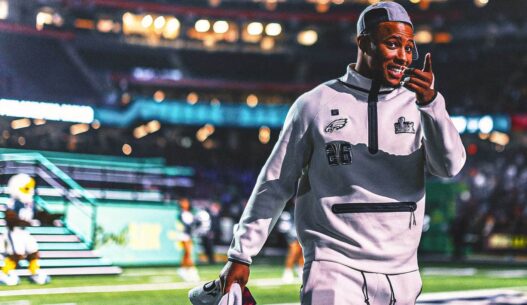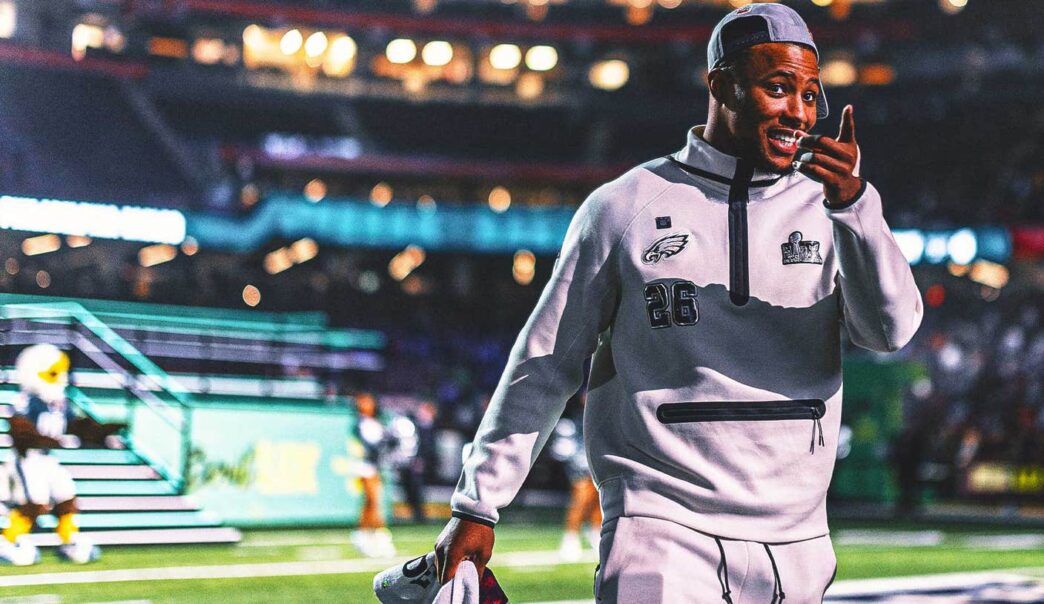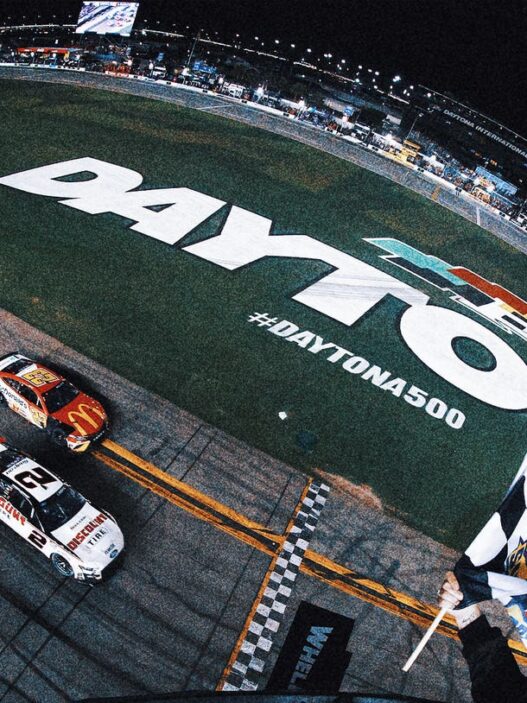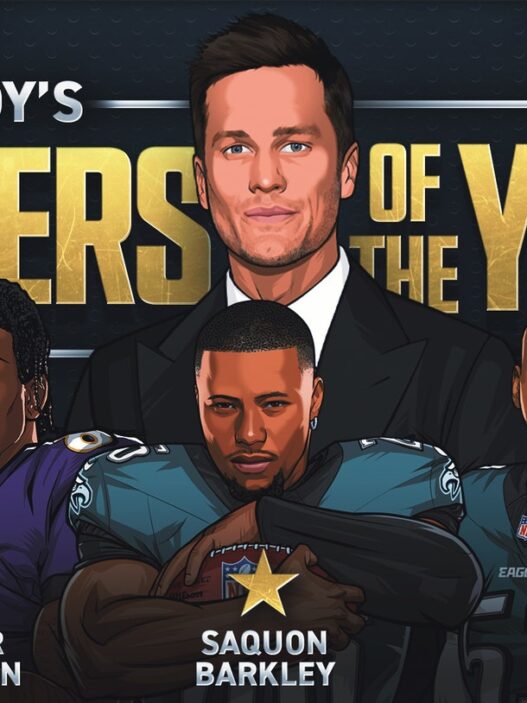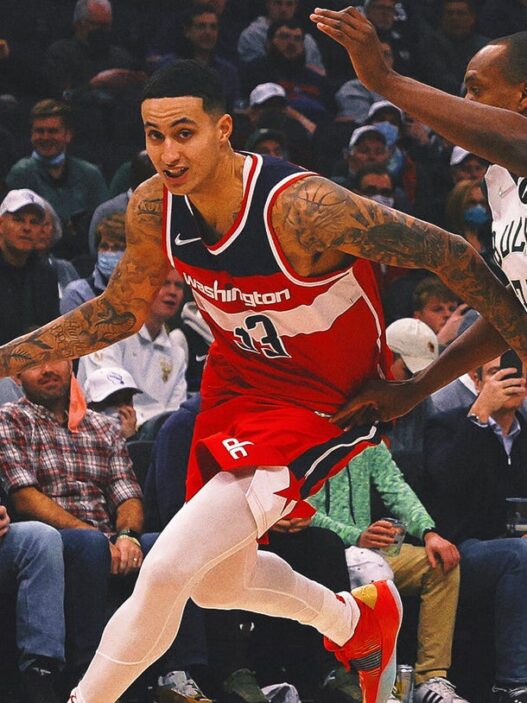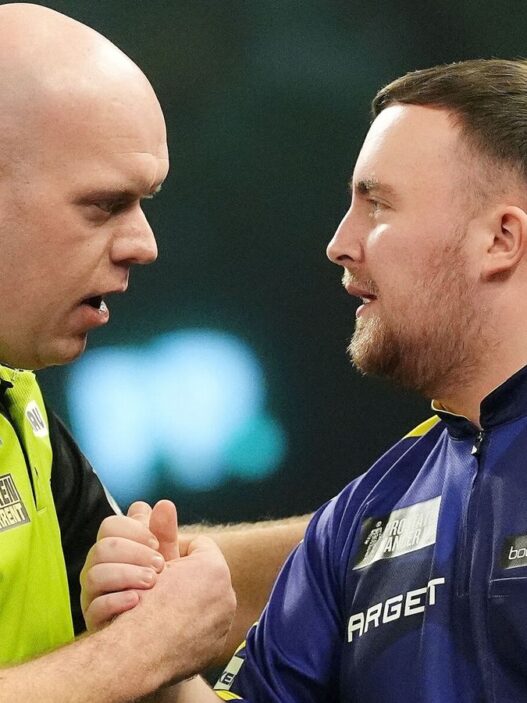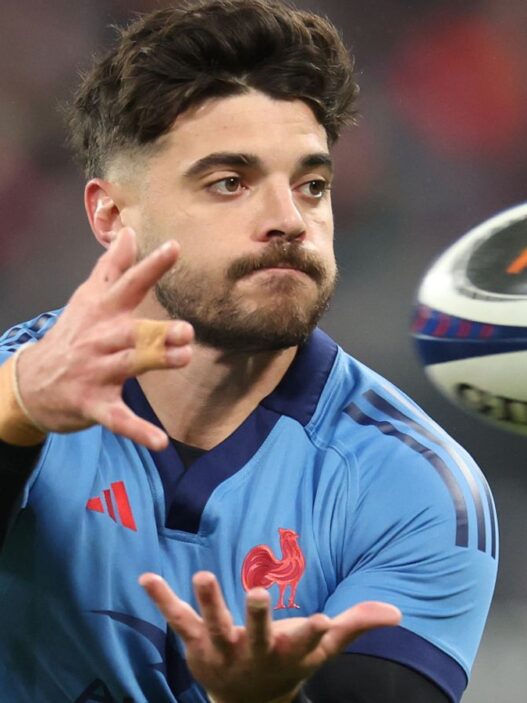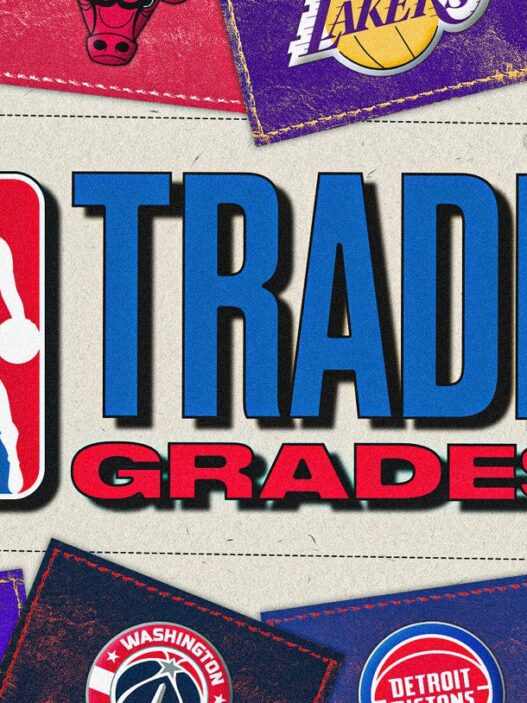Ralph Vacchiano
NFL Reporter
Howie Roseman knows as well as anyone that sometimes things just don’t work out as planned. Two years ago, the Philadelphia Eagles team he built was maybe one terrible penalty away from winning a Super Bowl. Last year they followed that up with a 10-1 start.
And then, just like that, it was all gone. Everything he built seemed to be erased in a 1-6 collapse and a blowout loss in the first round of the playoffs.
Everyone in Philadelphia was angry, including Roseman’s boss.
But all the Eagles general manager could do was go right back to work.
“When you work in Philly, you know you’re one step away from (angry) banners flying over stadiums,” Roseman said this week at the Super Bowl in New Orleans. “So you have to keep your head down. All that matters is winning. I can explain my bad moves and the reasoning behind them and the rationale that I think I had. Nobody cares.
“You’re judged by your record and you’re judged by the success of that.”
By that measure, no general manager in sports had a better offseason than Roseman did last year. He doubled down on the roster he had built and aggressively added to it, addressing every hole, every flaw that he could he find. And the results were spectacular. After a sluggish 2-2 start, his Eagles went on a tear after their bye week, winning 10 straight games on their way to a 14-3 record.
And since then they’ve cruised through the playoffs to win the NFC championship and set up a rematch with the Kansas City Chiefs in Super Bowl LIX.
So how did the wizard/general manager do it? With a combination of bold spending, smart drafting and an unparalleled eye for talent. He also made several moves that weren’t exactly in his comfort zone, too.
Here’s a look at five of the biggest moves Roseman made last spring that helped the Eagles shake off their 1-6 disaster and get right back to the top:
1. Signing Saquon Barkley
Roseman said recently that this decision was “not a hard trigger to pull.” In fact, it had to be the easiest call of the offseason. The Eagles did have a 1,000-yard rusher last season (D’Andre Swift, 1,049 yards), but despite their powerful offensive line they weren’t really a dangerous or consistent rushing team. They couldn’t count on it, and didn’t, when they needed it most.
So when the Giants wouldn’t pay Barkley, the Eagles gladly did, getting the prize of a deep, free-agent running back class for three years and $37.5 million with $26 million guaranteed. And Barkley rewarded them with a near-record season — 2,005 rushing yards in 16 games, good enough to make him an MVP finalist and turn the Eagles into the second-best rushing team in the NFL. They averaged an astonishing 179.3 yards per game — more than 70 yards per game more than last year.
“I was extremely confident in the player and the person,” Roseman said. “I’d like to say he’s exceeded expectations, but he’s always been one of the best players I’ve ever seen whenever I’ve watched him. So I’m really not surprised by any of this.”
Barkley has stabilized the Eagles’ offense, given room to quarterback Jalen Hurts to rediscover some of his old form, and has shown quite a knack for huge plays in huge moments. That’s been especially true in the first three games of the playoffs when he’s already run for 442 yards and five touchdowns in three games.
2. Stabilizing the coaching staff
If you’re looking for a reason why the Eagles fell apart late last season, look no further than the dysfunctional staff under head coach Nick Sirianni. Offensive coordinator Brian Johnson’s scheme and reliance on the passing game never seemed to mesh with Sirianni’s philosophy. And defensive coordinator Sean Desai’s scheme was so ineffective that he was benched midseason for Matt Patricia, who remarkably managed to be worse.
Sirianni was probably going to make changes anyway, but multiple sources in the Eagles organization insisted that Roseman was the driving force behind the firings of Johnson, Desai and Patricia and the hiring of their replacements — offensive coordinator Kellen Moore and defensive coordinator Vic Fangio.
Getting the 66-year-old Fangio in particular had been a years-long quest for Roseman. Fangio was a consultant with the Eagles in 2022 and would have been their choice to replace the departed Jonathan Gannon in 2023 if Fangio hadn’t been hired by Miami by the time Gannon had left for Arizona.
Fangio, after a rough start, turned the Eagles into the No. 1 defensive team in the NFL. Moore, meanwhile, found the right balance between the run and the pass, leaned into Barkley and making the offense far more consistent than it was during the collapse at the end of last year.
3. Signing Zack Baun
If there was one clear flaw in the Eagles’ defense last season, it was the linebacker corps. And to be fair, they were mostly counting on Nakobe Dean’s return to health to spark that improvement — which he did this year, before he got hurt again.
When Roseman signed Baun away from the New Orleans Saints for just one year and $3.5 million, the GM didn’t see him as an answer to Philly’s linebacking problems. He viewed him as a situational edge rusher to be in the rotation behind Bryce Huff, a much more expensive free-agent signing (three years, $51.1 million, $34 million guaranteed) that didn’t work out so well. He also said he viewed Baun as potentially “the best special teams player we have.”
But that, Roseman said, was the “floor.” They also viewed him as a player with “a similar skillset” to Andrew Van Ginkel, who had six sacks and eight pass deflections in Fangio’s defense in Miami last year. And sure enough, given that role in Philly, Baun thrived, making a team-high 151 tackles with 3.5 sacks, four pass breakups, five forced fumbles and being named a first-team All-Pro.

4. Drafting Quinyon Mitchell and Cooper DeJean
There’s no doubt that the draft broke perfectly for the Eagles, and Roseman had no actual control over that. But he took advantage of those breaks by recognizing the Eagles’ biggest needs and stepping way out of his comfort zone.
So when no cornerbacks had been taken in the first 21 picks of the draft, Roseman understood that his secondary had been a mess in 2023 and that James Bradberry would soon have to be replaced. So he drafted Quinyon Mitchell from tiny Toledo — a small school risk that Roseman has almost never taken in the first round.
And then Roseman took another risk. The Eagles hadn’t drafted a corner in the first round since 2002, and had only taken two in the second round in that same span. But when the versatile DeJean was still sitting there at Pick No. 40, Roseman took a corner again. And he ignored the fact that DeJean missed much of the draft process with a broken leg, figuring he could help out later in the season.
The result: Both are finalists for the NFL Defensive Rookie of the Year Award — the only time one team has produced two of the top-five vote-getters for that award for at least the last 25 years. Mitchell quickly took over as the starter opposite Darius Slay and DeJean eventually took over the nickel role.
And together they quickly rebuilt a secondary that had become a liability last year and turned the Eagles into the top-ranked pass defense in the league.
5. Signing G Mekhi Becton
Roseman planned to begin replenishing the depth of his aging offensive line in the draft, but he wasn’t able to make that happen in the early rounds. So as soon as the draft was over, he scoured what was left of the free agent market and saw one very large man that stood out.
Becton, a 6-7, 363-pound former first-round left tackle with the Jets was still available, but after being a bust in New York with constant questions about his conditioning he didn’t have many options. Roseman said he saw “a really talented guy who was still available, and so it was kind an easy decision for us.”
The Eagles signed Becton to a one-year, $2.75 million contract for depth at tackle. But Roseman and Sirianni talked in the spring and decided to try Becton at guard — a position he had never played. And when starting right guard Tyler Steen injured his ankle in a preseason game, Becton was ready to step in, and never looked back.
The result was that an offensive line that was already reeling from the retirement of long-time center Jason Kelce didn’t miss a beat. Becton, under the guidance of offensive line coach Jeff Stoutland, turned into one of the better guards in the NFL and the Eagles line remained one of the best in the entire league.
Ralph Vacchiano is an NFL Reporter for FOX Sports. He spent the previous six years covering the Giants and Jets for SNY TV in New York, and before that, 16 years covering the Giants and the NFL for the New York Daily News. Follow him on Twitter at @RalphVacchiano.

Get more from National Football League Follow your favorites to get information about games, news and more

